Coronavirus Australia live news: States close borders to SA as cases climb to 17
Premier Steven Marshall has reinstated a raft of limits on pubs, restaurants, funerals and sport, saying ‘we’re not going to wait for the situation to deteriorate’.
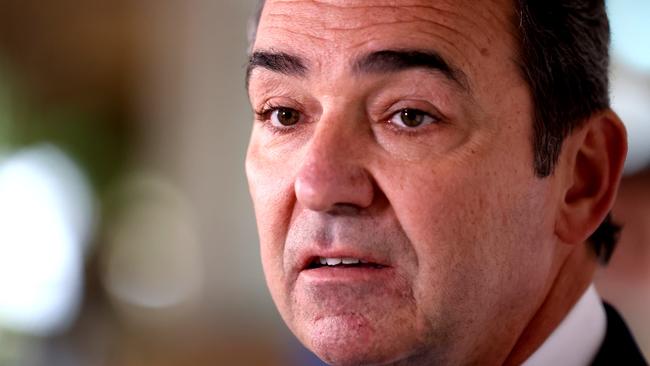
- Outbreak confirmed in SA nursing home staff
- Qld declares Adelaide hot spot
- Borders slam shut on SA
- ‘Very serious’: SA cluster grows to 17
- Shock as travellers quarantined
- ‘Cheap debt to rebuild surplus’
- Aged-care worker cluster revealed
- Visible means of youth support
Welcome to our live coverage of the fallout from the coronavirus pandemic. The NT and Tasmania have imposed immediate quarantine and border restrictions on SA as a COVID-19 outbreak in South Australia rises to 17 cases. Passengers on a Sunday flight from Adelaide to Perth were shocked to be told they had to go into two weeks’ quarantine on arrival, despite the West Australian government only hours earlier assuring South Australians they could enter the state without having to isolate.
Geoff Chambers 10.30pm: Morrison sends troops to save Christmas
Scott Morrison will deploy defence force and contact tracing teams to South Australia and support rapid testing, in a desperate bid to keep domestic borders open and salvage the national cabinet plan to remove COVID-19 restrictions by Christmas.
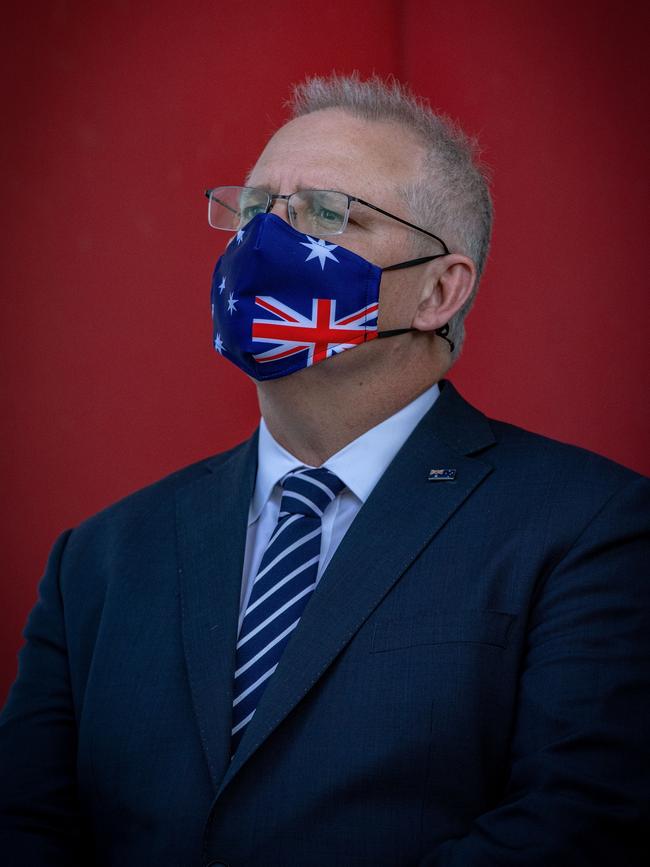
Despite health authorities on Monday being hopeful of controlling the Adelaide COVID-19 cluster, Queensland, Western Australia, Northern Territory, Victoria and Tasmania declared the city a hotspot, forcing travellers to cancel flights or face mandatory hotel quarantine.
Tourism, aviation and industry chiefs slammed the reimposition of border restrictions as a “knee-jerk” response to a localised outbreak, warning that the nation must put its trust in existing COVID-19 contact tracing and social distancing measures.
Cricket Australia was holding emergency meetings with state health authorities on Monday night as the Adelaide outbreak threw the summer of cricket into chaos. The one-day and Twenty20 series against India, the first Test scheduled for Adelaide Oval on December 17 and the Big Bash League are now all in doubt.
NSW Premier Gladys Berejiklian said her state, which has successfully managed coronavirus clusters and community transmission, would not close its borders. “We need to live with COVID,” she said. “Everytime there’s an outbreak you can’t shut down borders, disrupt lives, disrupt businesses, and we need to have confidence not just in our own system but the system in other states to be able to get on top of the virus.”
Ewin Hannan 9.45pm: Employers urged to subsidise work from home
Employees working from home would be paid an upfront allowance to cover work-related expenses and employers would insure equipment used by employees working remotely, under a new ACTU policy that unions will seek to have adopted by white-collar employers.
The working-from-home charter, endorsed by the ACTU executive, also proposes a body to ensure the “ethical” use of data collected about employees working from home, the appointment of union delegates to represent remote workers, and the ability to have disputes over remote work arbitrated.
ACTU secretary Sally McManus said unions would initially seek an agreement with employers in heavily unionised workplaces to implement the charter as company policy before seeking to have it incorporated into enterprise agreements when they were renegotiated.
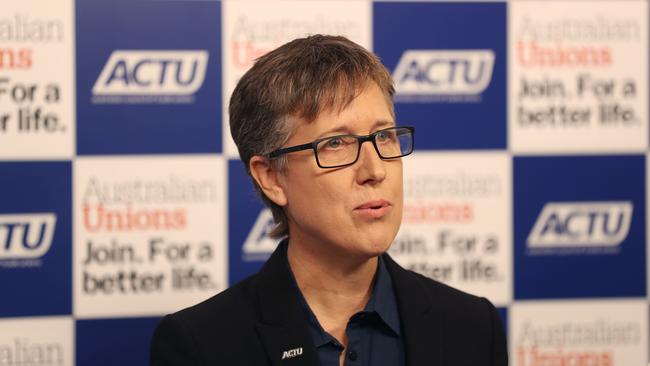
Natasha Robinson 9pm: Infection surge triggers fears of second wave
Health authorities in South Australia are scrambling to contain what they fear could be a second wave of COVID-19 after the virus escaped hotel quarantine and spread among members of a large family whose movements while infectious have forced hundreds of people into isolation.
Two schools and a prison are urgently tracing close contacts of the 15 family members at the centre of the main cluster, with a total of 17 new infections diagnosed in SA on Monday.
An aged-care home in central Adelaide where two nurses worked while infectious is in lockdown, while scores of staff at the Lyell McEwin Hospital have been forced into isolation after an 80-year-old woman associated with the Parafield Gardens family cluster was treated at the hospital.
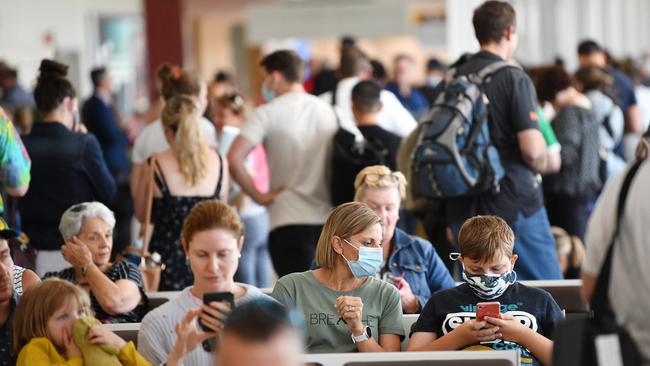
Damon Johnston 8.15pm: Cries for help as kids struggle with freedom
Melbourne students battling lockdown-related mental illnesses are continuing to struggle despite returning to classrooms, with doctors revealing they are being overwhelmed by an unrelenting crisis among children and teenagers.
Medical experts have told The Australian that major psychological and emotional problems triggered by the coronavirus restrictions had not been fixed by schools reopening.
Camberwell GP Stacey Harris said the return to school had, in some cases, exacerbated mental health problems of young patients she was treating.
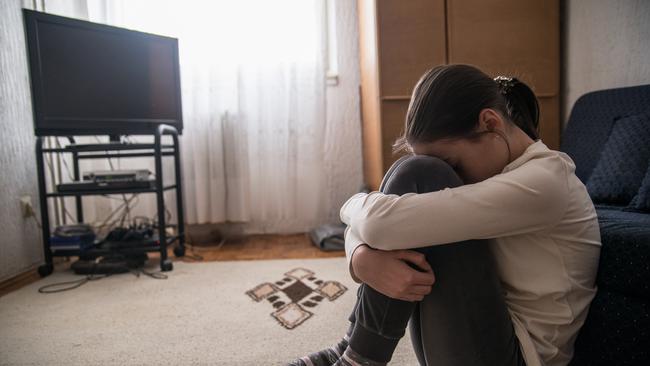
Yoni Bashan 7.30pm: NSW to shout lunch, pay for the movies
Every adult in NSW will receive $100 in vouchers to use on dining, entertainment and recreation in a bid to stimulate the hospitality and cultural sectors still suffering from the impacts of the COVID-19 pandemic.
The scheme, costing $500m, will involve four digital vouchers worth $25 each, two of which will be redeemable at restaurants, cafes and other venues where food is served. The remaining vouchers will be for use at art galleries, cinemas, amusement parks and theatres, the Treasurer’s office said.
Known as Out & About, the scheme was designed by Restaurant and Catering Australia, an industry group which submitted proposals on the initiative to governments across the country in August.
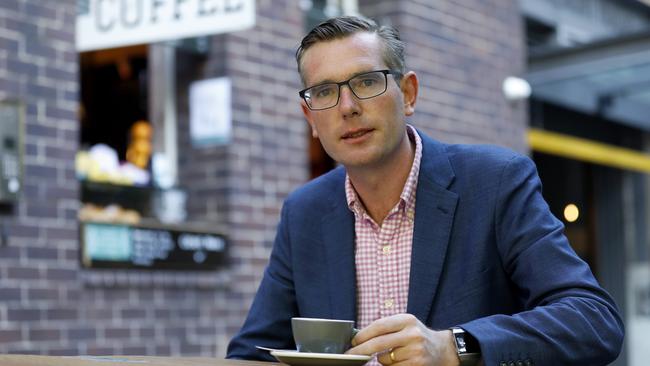
Emma Yeomans, Kat Lay 6.40pm: Medical staff in anti-vax group
Hundreds of British National Health Service and care home staff have formed a group opposed to vaccinations, wearing masks and testing in hospitals.
The group, NHS Workers for Choice, No Restrictions for Declining a Vaccine, has gained more than 250 Facebook members in a month. They include a GP, several accident and emergency nurses, healthcare assistants, lab workers, and private and public care home staff.
It says it is not an anti-vaccine group and exists to support healthcare workers, but the Facebook page includes posts saying the Pfizer-BionTech coronavirus vaccine was a new frozen virus, similar to smallpox, to be “unleashed” on the world. They compared it to “poison”.
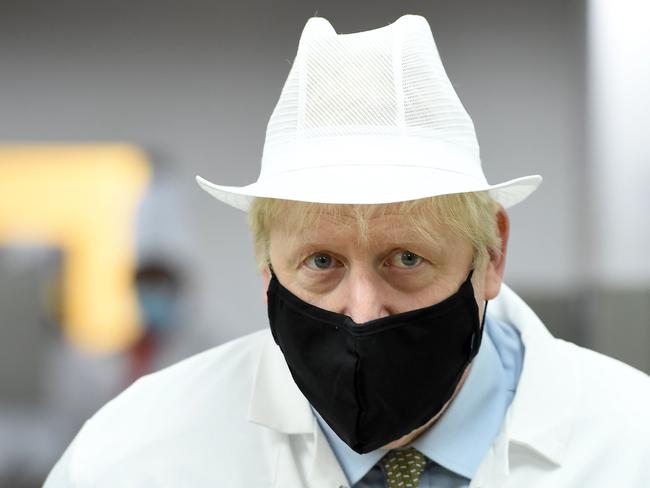
One member who works in a GP’s surgery, said she would rather quit than help with a vaccination program. Commenting on news that healthcare workers would be first in line for immunisation, one member wrote: “NHS staff gone — all sick and old will be gone. NHS gone. Population under reconstruction. Welcome to the new world order.”
Researchers have found that exposure to online misinformation could reduce the proportion of people getting vaccinated. Last weekend British Health Secretary Matt Hancock announced new measures to tackle disinformation, saying: “We want users to have greater access to reliable and scientifically accurate information on vaccines from trusted sources like the NHS so they can make informed decisions to protect themselves and their loved ones.”
However, some opponents of the vaccine work or have worked for the NHS. Kate Shemirani, who has claimed that the pandemic is a plot to kill off swathes of the population, was suspended from the register by the Royal College of Nursing in July.
Mohammed Iqbal Adil, a surgeon who said that COVID-19 was a hoax, was suspended by the General Medical Council in July.
Michael Fitzpatrick, a GP and trustee of the charity Sense About Science, said: “It is saddening, though perhaps not surprising, that a small number of health professionals are giving their support to the anti-vax campaign. No doubt there will now be demands for disciplinary measures . . . These should be resisted . . . in the face of the challenges of the pandemic we need more public discussion and debate, not less.”
Letters and legal advice on how to avoid wearing a mask in hospitals, how to decline testing and even how to get out of the track-and-trace system are shared with members.
The Times
READ MORE: Johnson in isolation after new brush with coronavirus
David Penberthy 6.10pm: SA’s anxiety, disbelief and a jolt of reality
The mood in South Australia is one of anxiety and disbelief.
The anxiety is justified, the disbelief less so.
The scale and nature of SA’s coronavirus outbreak means people are right to be anxious about the risk of widening infections and the grim probability of deaths in a state that had previously registered just four.
On a less grave but still distressing level, families who just days ago had joyfully telephoned their kids and grandkids interstate to discuss a pending Christmas reunion are now cancelling those plans.
Businesses that were finally getting a taste of real freedom — with the SA COVID-19 Transition Committee announcing only last Friday the latest easing of what were already modest restrictions — are now facing the prospect of reduced patron numbers, if not crippling, outright closures.
The anxiety is valid. The disbelief is not.
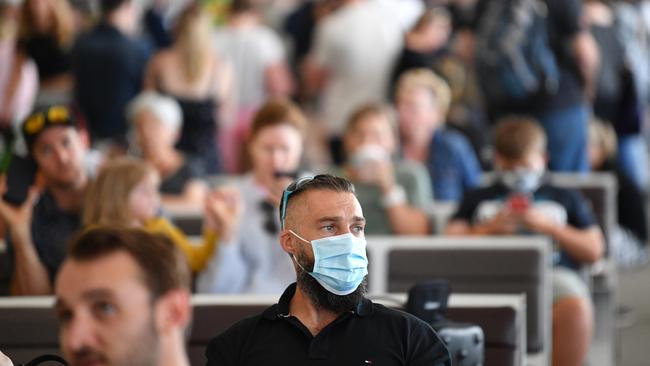
Philip Willan 5.45pm: Hotels take pressure off packed hospital wards
Italian authorities are seeking to relieve the pressure on hospitals by opening “COVID hotels” to provide secure accommodation for patients with mild symptoms who cannot be adequately cared for and isolated at home.
New cases rose above 40,000 on Friday and photos and videos of hospitals struggling to cope with the numbers of new admissions have caused public alarm. Patients were seen receiving oxygen as they waited in their cars outside a hospital and another image showed a dead man on the floor of a bathroom in another hospital in Naples.
The COVID hotels have been welcomed in Rome in the absence of tourists. The number of tourists nationwide has fallen by 77 per cent because of the pandemic.
“In Rome we have made available 30 COVID hotels and at the moment six or seven of them are being used,” said Giuseppe Roscioli, president of the Rome hoteliers’ association.
The regional government pays €30 ($49) a day for a room, which includes reception services, cleaning and bathroom products.
Antonella De Gregorio, the owner of the three-star Urban Garden Hotel, said the experience had been positive. “No problem with the staff or the guests and no problem with the neighbours,” she said.
The Times
READ MORE: One in 10 mortgage holders struggle to meet repayments
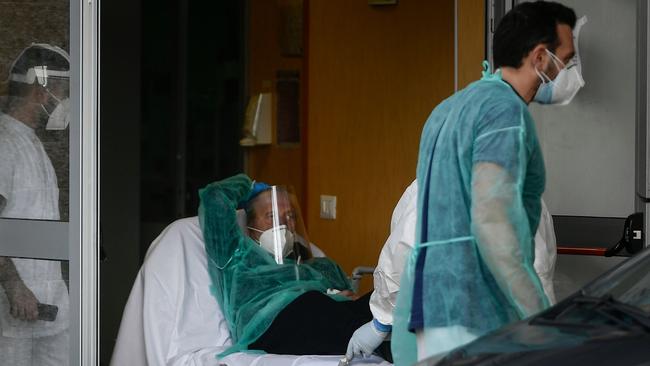
Rachel Baxendale 5.05pm: SA arrivals face checks in Victoria
Officials from Victoria’s Department of Health and Human Services are meeting every flight from Adelaide at Melbourne airport to conduct interviews, temperature and symptom checks.
Authorised officers would take the names and contact details of all South Australian arrivals at the airport, and asking them where they had been, after the Adelaide outbreak.
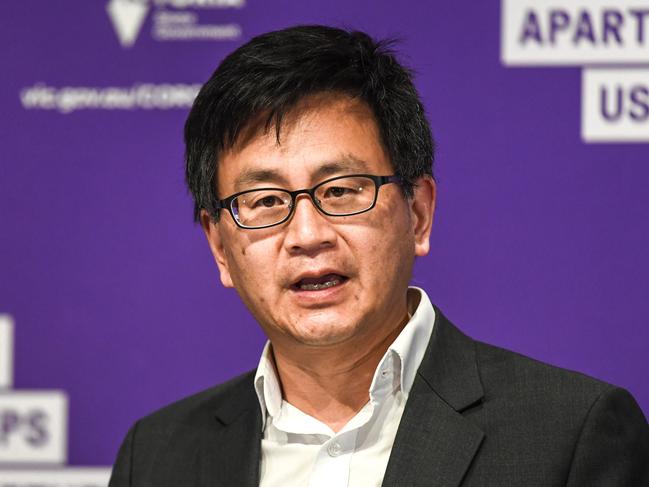
“They will be asked to isolate and get tested if they are coming from an area of risk identified by the South Australian government,” Victorian Deputy Chief Health Officer Allen Cheng said on Monday.
“If they refuse to get tested they will be treated as a close contact and be asked to self-isolate for 14 days.
“Anyone (who) has been in SA in the last 14 days should check the exposure sites listed on the SA Health website and take the appropriate actions.
“For instance, if they were in the Lyall McEwin Hospital ED at the specified times (when coronavirus-positive people were present), to self-quarantine and contact DHHS to seek advice.
“And if they have any symptoms, no matter how mild, they should get tested and self-isolate until the result is available.
“The Department of Health and Human Services continues to monitor the situation closely and will provide updated advice as required.”
READ MORE: The big Covid-19 unknown
Paige Taylor 4.50pm: WA Treasurer quits twice in a year
West Australian Treasurer Ben Wyatt has announced he is quitting politics for the second time in less than a year.
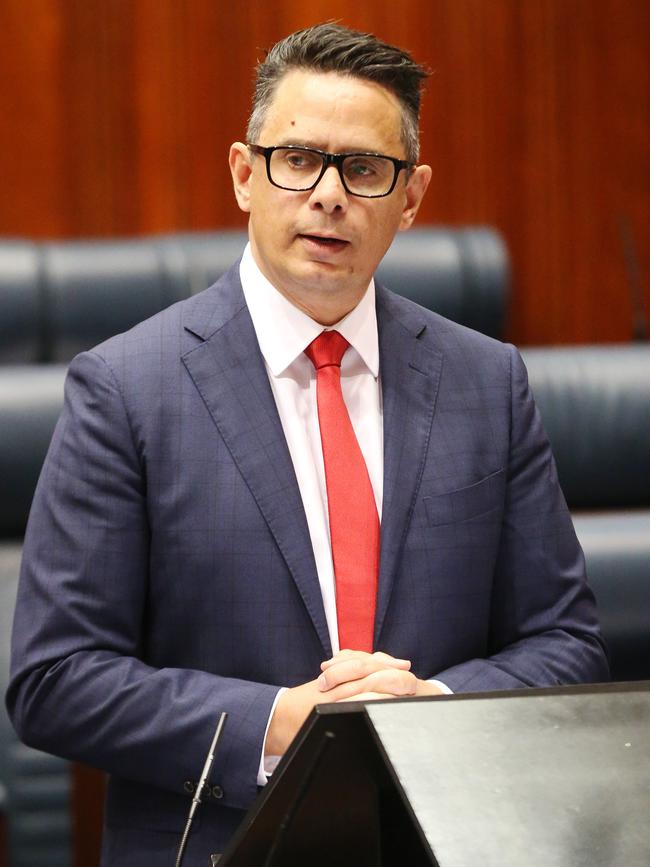
Mr Wyatt — the McGowan Labor government’s star performer — first announced in February that it was his intention to retire at the 2021 state election but soon changed his mind, saying he wanted to help steer WA’s economy through the crisis.
On Monday he said: “I have made the difficult decision to reaffirm my previous intention to retire at the next state election.
“In March, at the height of the COVID-19 pandemic’s impact on the Western Australian community, I had been reluctant to leave in the midst of this great fight.
“But, having completed the delivery of the state budget, which supports the continued economic recovery from the pandemic, I am now confident that Western Australia is well on its way to overcoming the challenges presented to it by COVID-19.”
Max Maddison 4.15pm: Restrictions return for SA’s ‘biggest test’
Premier Steven Marshall has reinstated a raft of new restrictions, describing South Australia’s growing outbreak as the “biggest test to date”.
Restrictions across swathes of the economy would come into effect at midnight on Monday and were likely to continue for the next two weeks, Mr Marshall said.
“The next 24 hours will be critical but we’re not going to wait for the situation to deteriorate. We’re going to listen to expert advice,” Mr Marshall said on Monday afternoon.
Gyms and recreation centres will be closed, while community sport, both indoor and outdoor, has been cancelled.
Visitors at private residences will be capped at 10 people, while only 50 will be allowed to attend funerals.
Pubs, clubs and restaurants will be restricted to 100 people — and would be limited to one person per frou square metres. Eating or drinking while standing is banned.
Mr Marshall urged South Australians to work from home and wear face masks when it is impossible to socially distance, such as public transport. He also advised against unnecessary travel.
To ensure the state had enough hotel capacity to meet local quarantine requirements, Mr Marshall said all inbound international flights had been suspended, and he had accepted an offer from Prime Minister Scott Morrison for increased support from the Australian Defence Force.
“We will throw absolutely everything at this to get on top of the cluster,” he said.
READ MORE: Virus cluster throws summer into chaos
Max Maddison 3.35pm: Virus is still there and doesn’t care: Morrison
Adelaide’s growing cluster shows “absolute fail-safes” do not exist when it comes to protecting the country from COVID-19, Scott Morrison says.
After the number coronavirus cases grew to 17 on Monday, the Prime Minister said South Australia’s test and tracing system would be “put to the test”.
He had spoken to Premier Steven Marshall about ensuring any risks of contagion in aged-care facilities were dealt with quickly.
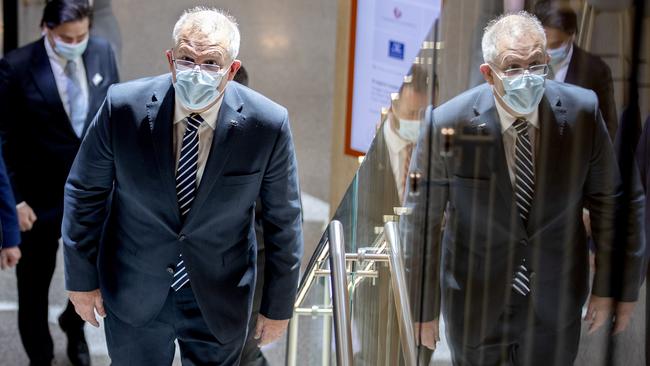
“The virus hasn’t gone anywhere. It is still there. It will seek to exploit any vulnerability, how small or great, and that is why there’s layers to our defences,” Mr Morrison said.
“It is a very timely reminder here and all around the country, whether you have been behind borders or not, the virus doesn’t care.”
With the situation in Adelaide a “very serious concern”, the Prime Minister said he hoped the country would still be able to open by Christmas but was not thinking beyond the next couple of days.
“That will depend a lot on the disposition of various states and territories, but ensuring that you press on as a sign of confidence in your testing and tracing system,” he said.
“These have significantly improved. It will be a strong test of the state’s system in the days ahead, but the early signs are encouraging and how they are reacting to that and being able to track down.”
READ MORE: The big unknown is where people are getting infected
Matthew Denholm 3.15pm: Tasmania raises alert for South Australians
Tasmania has shifted SA to “medium” risk status, meaning all arrivals from that state from Monday night will have to quarantine for 14 days.
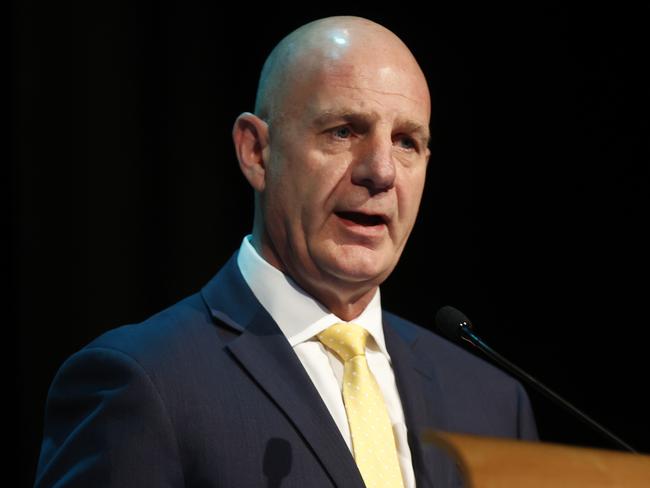
The decision will be updated on Tuesday, with consideration being given to granting a different status to arrivals from rural SA.
Premier Peter Gutwein said a number of seasonal workers due to arrive from SA would also be required to undergo mandatory quarantine.
Mr Gutwein also revealed talks with the federal government on Tasmania hosting hotel quarantine facilities for Australians arriving on mercy flights from overseas had so far failed to reach agreement.
Tasmania would therefore not accept any such flight before early December and may withdraw its offer if satisfactory arrangements could not be agreed.
“We won’t take any action that would compromise Tasmanians’ health,” he said. “We will either get that right or we won’t be moving forward.”
READ MORE: Mental illness costing nation $600 a day
Max Maddison 2.30pm: Outbreak confirmed in SA nursing home staff
Two employees at the Anglicare Brompton aged-care home in South Australia have tested positive for COVID-19, as the outbreak in Adelaide continues to grow.
In a statement, AnglicareSA said the facility had been closed to all visitors after the employees tested positive on Sunday, November 15.
“The employees have not been in attendance at Brompton since Friday 13 November and have not worked at any other AnglicareSA residential aged care home,” the statement said.
The site has undergone a deep clean, while all staff and residents have had to undergo mandatory precautionary testing. All residents have been put into isolation.
At this point, no residents or staff are symptomatic, Anglicare said.
The cluster of coronavirus cases in Adelaide has jumped to 17.
AnglicareSA confirms that two employees at its Brompton aged care home tested positive to COVID-19 on Sunday 15 November.
— @AnglicareSA (@AnglicareSA) November 16, 2020
We're taking no chances in safeguarding the wellbeing of our residents and staff. For full details, click the link below. Or please call 1800 560 710.
#BREAKING: Two employees at Anglicare’s Brompton aged care home have tested positive to COVID-19.
— 9News Adelaide (@9NewsAdel) November 16, 2020
All staff and residents are now being tested and a full clean of the site is being carried out. #9News pic.twitter.com/hXcURNbShP
Angelica Snowden 1.50pm: PM unveils mental health report, details new services
Releasing the Productivity Commission report, Prime Minister Scott Morrison revealed the early psychosis youth services program will be extended to June 2022 with $53 million worth of funding.
Mr Morrison also announced the National Mental Health Initiative — called Be You — would be funded for a further two years with an extra $46m. He said 70 per cent of schools participated in the program across the country.
He said mental health costs Australia $200bn per year — more than a tenth of the country’s entire economic production in 2019.
“It’s the cost that doesn’t discriminate … the cost of lost opportunity, lower living standards,” he said.
“When young people disengage from education. When those with mental illness and their carers have reduced hours of work or cannot work or are less productive at work.
“It’s the social and emotional costs of suffering, exclusion and in worse cases, premature death.”
He said the reports — including the Productivity Commission report and advice on suicide prevention — were emphatic Australia’s mental health system needed to be overhauled in three key ways.
Firstly, people must be engaged and encouraged to have strong ties with their community as the first line of defence. Secondly, Mr Morrison said we must abolish the social stigma of mental health once and for all. And finally the system must be “compassionate” and provide the “right care at the right time”.
National Cabinet will establish a Health Reform Committee – led by health minister Greg Hunt – whose first priority is to deliver a new national agreement on mental health and suicide prevention by November 2021.
He said agreement between the states and territories would be vital to ensuring anyone who suffers from mental health issues received fast and compassionate treatment.
“My Government will be carefully considering these reports … with a view to action.”
READ MORE: Suicide rise as women struggle with lockdown
Angelica Snowden 1.35pm: Mental health issues don’t discriminate: PM
Scott Morrison says the coronavirus pandemic is “first and foremost” a health issue with severe economic consequences, ahead of the release of the Productivity Commission’s report into mental health.
“Our nation’s health is as linked to our nation’s prosperity … we need to remember that going through this year,” the prime minister said.
He also acknowledged the mental health impact of the coronavirus crisis, with calls to helplines 20 per cent higher compared with 2019.
“Mental health issues and suicide do not discriminate,” he said.

“It doesn’t matter where you live, what you do for a living.
“One in five Australians will experience a mental health illness every year and half of us will be diagnosed during our lifetime.”
He said in the last four weeks, Lifeline, Kids Helpline and Beyond Blue together answered more than 112,000 calls for help, around a quarter higher than the same time in 2019.
Mr Morrison said the Productivity Commission report examined how effective outcomes of policies, systems and programs were across all jurisdictions on mental health.
Interim suicide prevention advice would be released today as the government committed to the “road ahead” for suicide prevention.
“When we set out on this path, nobody could have foreseen a global pandemic impact every facet of our way of life,” he said.
“Separation from family members, the loss of jobs and businesses.
“The disruption to our community and social networks, devastating for some.”
He said the grief spurred on by the pandemic which had prevented loved ones from attending funerals and led to less than normal human interactions.
The government will have invested nearly $5.7 billion on mental health programs and policy by 2021, Mr Morrison said.
READ MORE: Visible means of youth support
Peter Lalor 1.25pm: Breaking: Australian cricket summer chaos
Plans for the summer have been thrown into chaos as stars including Tim Paine, Matthew Wade and Cameron Green forced into isolation following a COVID outbreak in Adelaide.
The blockbuster day-night first Test against India due to start on December 17 at Adelaide Oval is now under a cloud, but the more immediate concern is the logistics around player movement for the international white ball series and the fast-approaching BBL.
News Corp understands Tasmanian players who returned from playing Sheffield Shield matches in Adelaide last week, were sent text messages from Cricket Tasmania on Monday morning instructing them they must self-isolate at home, start wearing face masks, report for COVID tests and await a potential call from State Government health officials.
WA players delayed their return to avoid the state’s quarantine restrictions which were lifted on Friday. They flew into the state from Adelaide on Saturday but were contacted by government officials on Sunday and told to self isolate and prepare for further instructions.
Police visited the home of at least one player to check the instructions were being followed and local cricket authorities were meeting with the police yesterday to ascertain what they need do.
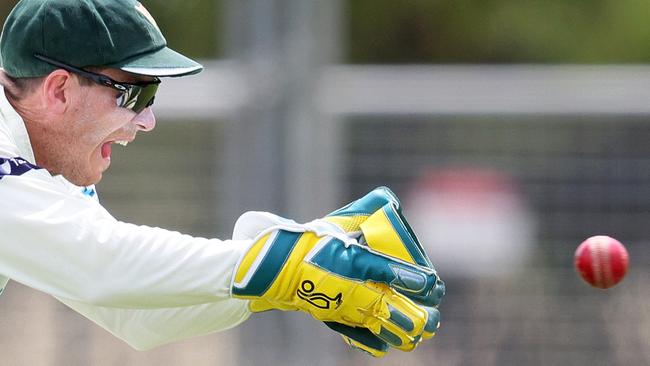
Cricket Australia is working feverishly behind the scenes to determine what the developing drama means for those players and coach Justin Langer who lives in Perth being able to take flights to Sydney on Sunday to begin their international bubble.
Another potential issue could be how quickly cricket officials might need to get the Adelaide Strikers BBL side out of South Australia before the tournament starts on December 10 in hubs in the ACT and Tasmania.
READ the full story here.
Chaos at Adelaide Airport as travellers about to board a flight to Brisbane are told they can abandon it if they wish.
— Mark Mooney (@MarkMooney7) November 16, 2020
About a dozen people decided to grab their bags off the plane and stay in Adelaide to avoid 14 days of self-isolation. #7NEWS pic.twitter.com/4GDTnKnoow
Angelica Snowden 1.22pm: ‘Very dangerous situation’ in SA: Premier
South Australia premier Steven Marshall says a COVID-19 outbreak in South Australia is a “very dangerous situation”, after a cluster grew to 17 overnight.
“I think many South Australians might have been becoming complacent over the week,” Mr Marshall told FiveAA radio this morning.
“We were returning to a type of COVID normal but now is the time where we need every single citizen to play their part and go and get tested,” he said.
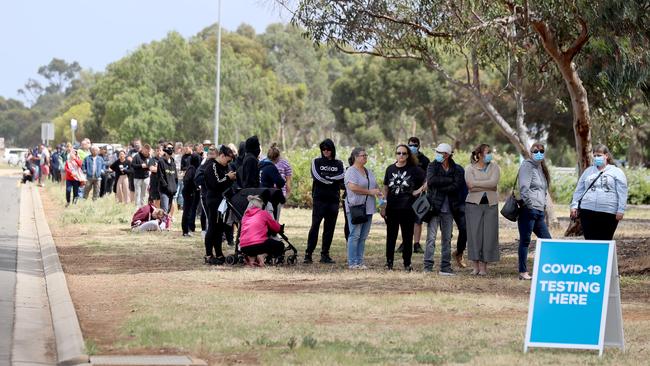
Mr Marshall said he would do “whatever it takes” to get on top of this cluster.
“We have done a good job with stopping clusters in the past in South Australia, we have had three significant clusters already, one in the Barossa, one at the airport and one at Thebarton college,” he said.
Mr Marshall said it was too early to speculate how the virus spread from hotel quarantine to an Adelaide hospital.
READ MORE: Echoes of Victoria
Rachel Baxendale 12.12pm: Victoria declares SA a hot spot, offers support
Premier Daniel Andrews offered South Australia “any support” it needs to stamp out at least 17 cases of coronavirus which appear to have escaped hotel quarantine in that state, as Victoria joined other states and territories in declaring SA a “hot spot”.
The offer comes after breaches in the Andrews government’s hotel quarantine program in late May and early June sparked Victoria’s second wave, resulting in 800 deaths and more than 18,000 cases.
“We’ve extended an offer of any support that we can today,” Mr Andrews said
He said new Health Department secretary Euan Wallace had spoken to his South Australian counterpart on Monday.
“I’ll leave it to (South Australian) Premier (Steven) Marshall to go through the details of these things, but it seems like there’s some security guards, it’s gotten out of hotel quarantine, large family, and look, anything we can do, anything we can do we’re more than happy to help.”
Joining other states in the hot spot declaration, Mr Andrews said “there’ll be a case-by-case process, when a person arrives at the airport there’ll be a sit down with them, symptoms, whether you’ve been to any specific locations, testing, rapid testing may be a feature of that,” he said.
“I’ve asked our public health team to look at that because we don’t want to take any chances at all.”
Mr Andrews said he had confidence in all states and territories to handle outbreaks, having been given assurances by Chief Scientist Alan Finkel at Friday’s national cabinet meeting.
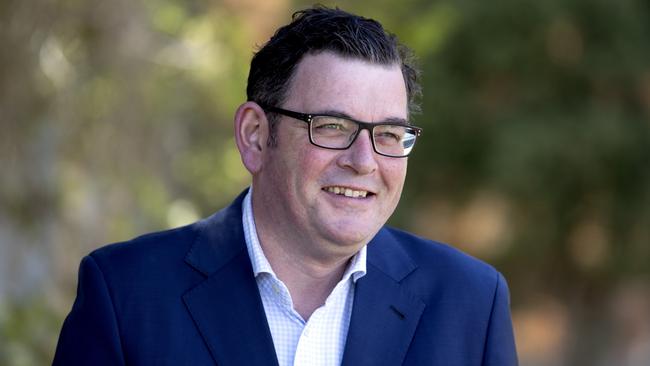
Asked whether South Australia had failed to learn from Victoria’s mistakes, Mr Andrews said: “I’m not in the habit of running those sort of commentaries. I’ll leave it to Premier Marshall to detail exactly what’s happened here.”
Victoria’s border with South Australia will remain open, despite SA being declared a hotspot.
“Our border’s remained open the whole way through. I’m looking to get these borders open,” Mr Andrews said.
“I want a situation where every border in the country is open by Christmas time so that we can have that COVID normal Christmas, not just in Victoria, but for those who have done it very hard not being able to visit family and friends, being separated from loved ones for a long, long time, that is tough.”
Meanwhile, hotel quarantine staff face routine testing when Victoria resumes receiving international arrivals, with an announcement on the timeline for that resumption “imminent”.
Mr Andrews said limitations may be placed upon hotel quarantine staff based on the occupations of their households.
“The notion of someone working in those environments and sharing a living space with people who work in a very high risk industry like aged care for instance, that’s something we’ve been given quite a bit of thought to,” he said.
As recently as August, a Victorian hotel quarantine staff member tested positive for coronavirus while moving between shifts at an aged care facility and a quarantine hotel.
In the recent South Australian instance, two family members of a hotel quarantine worker were working in aged care.
READ MORE:
Sarah Elks 12.12pm: Queensland declares Adelaide a hot spot
Queensland has declared Adelaide a hot spot, with mandatory quarantine for travellers to be enforced from midnight.
Premier Annastacia Palaszczuk said Chief Health Officer Jeannette Young had advised that the city of Adelaide should become a hotspot.
“That will take effect from 11.59 tonight … they will have to go into mandatory quarantine if they come into Queensland,” Ms Palaszczuk said.
For people who have arrived today, Ms Palaszczuk said those people would have to get tested and “stay where they are”.
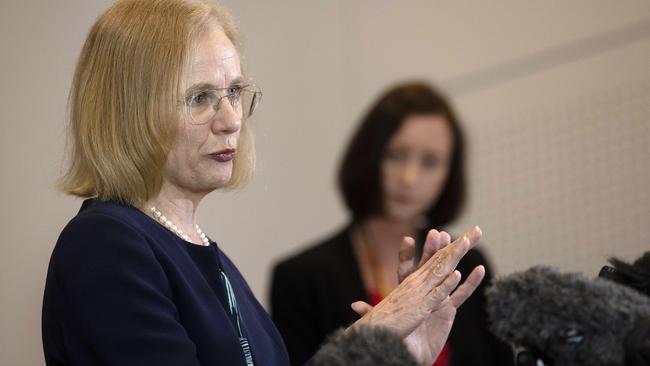
Dr Young said anyone who had arrived in Queensland who had been in Adelaide last week should come forward, be tested, and then stay where they are and isolate from other people for 14 days since they left Adelaide.
“It’s a very rapid increase in cases from four to 17, and some of those cases have been in complex situations – one in a prison for instance – so we need to get more information about where the risks are,” she said.
Dr Young said about 7000 people had arrived in Queensland from Adelaide since last Monday, and would now need to be tested and self-isolate.
Dr Young said Queensland’s hotel quarantine system was operated in a “more cautious” manner. If returning travellers tested positive for COVID-19, they were treated in hospital rather than continuing in the hotels as in other states.
She said police and hotel workers in the hotel quarantine system were also advised to get regularly tested.
Dr Young could not say whether the emerging Adelaide outbreak would affect whether Queensland could reopen to Victoria and greater Sydney at the start of December.
“If NSW and VIC start seeing cases in their communities – wherever they come from … then of course we’ll make a decision about whether we have to declare further hot spots,” Dr Young said.
READ MORE: Big unknown is where people are getting infected
Angelica Snowden 12.05pm: Second Adelaide school closes after cluster connection
A second school in Adelaide has been closed by health authorities after a COVID-19 case was identified in connection with an outbreak in South Australia.
Thomas Moore College in Salisbury – about 20 km north of Adelaide’s CBD – was shut down due to a coronavirus infection linked with a growing outbreak from Parafield.
Thomas More College is closed for at least 24 hours due to a confirmed case of COVID-19. Please DO NOT go to the school today. More details for staff/students will be provided shortly. If you have symptoms of COVID-19, even mild, get tested immediately. https://t.co/daEpRrfafv pic.twitter.com/3f0eMuGfAU
— SA Health (@SAHealth) November 16, 2020
Earlier, it was announced Port Adelaide Hungry Jacks, Mawson Lakes Primary School, Preschool and the Parafield Plaza Supermarket had been closed in connection with a COVID-19 outbreak that rose to 17 people on Monday, up from four on Sunday.
South Australia Health revealed they were urgently contacting everyone who visited the Lyell McEwin Hospital emergency department between 5.30pm on Friday and 4am on Saturday.
BREAKING second #Adelaide school, Thomas Moore College at Salisbury Downs closed due to infectious #Parafield cluster case. @theTiser #COVID19 #coronavirus pic.twitter.com/6U8noGp2lQ
— Andrew Hough (@andrew_hough) November 15, 2020
“If you have visited this location during this time, and have not been contacted by SA Health, you should self quarantine immediately,” South Australia Health said in a statement.
There are reports of the line for a pop up testing clinic at Parafield Airport – about 20km north from Adelaide’s CBD – reaching a few hundred metres long.
A big line at the pop up testing clinic at Parafield Airport. @10NewsFirstAdl pic.twitter.com/trxZzofjs2
— Cam Inglis (@inglis_cam) November 15, 2020
Angelica Snowden 11.05am: NSW will keep borders open to SA, trust tracing
NSW premier Gladys Berejiklian will not close the state’s borders to South Australian resident after a COVID-19 outbreak rose to 17 overnight.
Ms Berejiklian said she would monitor the situation closely, but would not prevent travellers from South Australia coming into NSW.
“The situation in South Australia is very concerning and I note that a number of state governments … have announced they will not allow people from that so called hotspot to enter into their state,” Ms Berejiklian said.
“NSW is not taking that position,” she said.
“I have spoken to Dr Chant this morning and we are confident that our border position remains in place, that we accept citizens from all states including Victoria from next Monday but of course it is an evolving situation if that changes we will act.”
There were no new cases of locally acquired COVID-19 reported in NSW overnight, with two infections recorded in returned overseas travellers.
One old locally acquired case was reported and added to the overall coronavirus count in NSW, but not included in Monday’s latest statistics.
The person from Western Sydney was found to have contracted the virus after they returned a negative result initially on October 23.
NSW Health confirmed they have not identified any further transmission from this case.
For the ninth day in a row, NSW has recorded no new cases of locally acquired #COVID19 in the 24 hours to 8pm last night.
— NSW Health (@NSWHealth) November 16, 2020
Two cases were reported in overseas travellers in hotel quarantine. pic.twitter.com/nb7XxvTsEV
Ms Berejiklian said Australian states and territories needed to trust each other’s COVID management and contact tracing systems.
“You can’t shut down borders and disrupt lives every time there is an outbreak and disrupt businesses,” she said.
“We need to have confidence not just in our own system but the system in other states to be able to get on top of the virus.”
Ms Berejiklian said a large number of members from one family are believed to have contracted coronavirus in South Australia.
Angelica Snowden 11.05am: SA outbreak a ‘slip up’: Halton
COVID-19 cases will occasionally escape hotel quarantine and the recent escape of coronavirus from a facility in South Australia a “slip up”, former health department boss and Coalition for Epidemic Preparedness Innovations chair Jane Halton says.
“The reality is it’s our first line of defence in terms of COVID-19 coming in but we are going to get the very occasional escape as the one we’re seeing here in South Australia which is why we need a really robust second of line defence,” Ms Halton told the ABC.
“That’s our contact tracing system which you know Professor Finkel has just reviewed,” she said.
Ms Halton said the key to managing outbreaks like that in South Australia — which grew to 17 on Monday morning — is to contact trace “really, really quickly”.
She said hotel quarantine in CBDs should continue to host return overseas travellers despite their proximity to non-infected Australians.

“We have got tens of thousands of Australians who want to come home and we need as many beds as we can get to actually get those Australians home, particularly people who want to come home for reasons of Christmas and family reunion but also sometimes ill-health and family tragedy,” she said.
“So yes we are going to have to use hotels (in the CBD) and we are going to have to use them right around the country if we’re going to meet that need.”
She described South Australia’s health system as “very good” but the state’s second line of defence needed to kick in to stem the outbreak.
“This is clearly a slip-up and clearly what they need to do now is rely on the second line which is to find where it’s gone.”
Sarah Elks 11am: Qld warns SA travellers restrictions loom
Queensland Premier Annastacia Palaszczuk has warned travellers about to leave Adelaide that her state is considering putting restrictions in place shortly, including quarantine.
In a tweet, Ms Palaszczuk said: “Anyone about to leave Adelaide should be advised we are assessing the COVID-19 outbreak and may place restrictions on travel, including mandatory quarantine for arrivals. More details will be announced shortly.”
Queensland’s borders are currently closed to greater Sydney and Victoria.
READ MORE: Cops called to shut down ‘beach rave’
Angelica Snowden 10.25am: SA travellers in Tasmania must self-isolate now
Travellers from South Australia visiting Tasmania have been told to immediately self isolate amid fears a coronavirus outbreak could spread from the southern state.
Premier Peter Gutwein said anyone who had travelled to Tasmania from South Australia since last Monday (November 9) will need to self-quarantine.
“If you are in a home residence to isolate there … if you are staying in accommodation go back to your hotel room and isolate there as well,” Mr Gutwein said.
“In terms of travellers from interstate, we are contacting them proactively as well through the Tassie travel app and we will be sending a similar message to them, in terms of these arrangements,” he said.
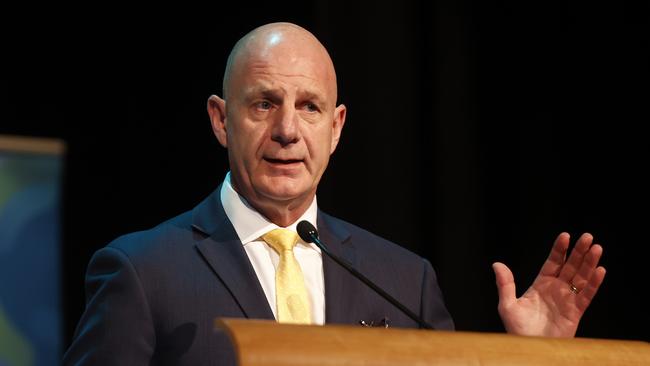
“For those that would enter the state directly today from South Australia or on the Spirit of Tasmania early tomorrow morning and anyone else who has spent time in South Australia since Monday 8th, we will expect you to quarantine on your arrival today.”
Mr Gutwein said a flight was due to arrive from Adelaide tonight and the Spirit of Tasmania was due to arrive on Tuesday morning.
He said he would not elevate South Australia to a ‘medium risk’ level yet — the same level as Victoria — but that could change after a briefing from the Australian Health Protection Principal Committee today.
The queue for COVID testing at Hampstead. #7NEWS pic.twitter.com/jT3iBg3Awh
— Elspeth Hussey (@ElspethHussey7) November 15, 2020
Angelica Snowden 10.25am: ‘Effective immediately’: NT declares SA a hot spot
Northern Territory chief minister Michael Gunner has declared South Australia a COVID-19 hotspot “effective immediately” amid news of a growing outbreak in the southern state.
Michael Gunner said people who arrived in Darwin this morning will be required to quarantine for two weeks or have the option to return to South Australia.
“All of the information that we are getting right now concerns us and there is still so much we don’t know about this outbreak,” Mr Gunner said.
“Because of this late notice, those who enter the Northern Territory today or tomorrow from South Australia will not need to pay the $2500.”
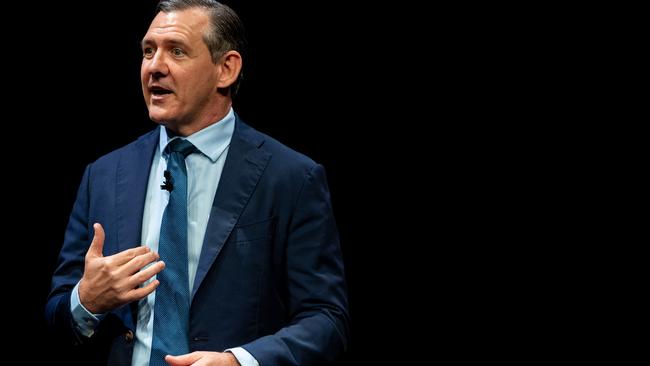
“People who intended to travel here later today in South Australia will need to make a decision now to stay there, or if they come here, to enter supervised quarantine,” he said.
There are at least two flights due to arrive in Darwin from South Australia which departed this morning.
Both are due to arrive in just under one hour.
Mr Gunner also announced residents from greater Melbourne would be allowed to travel to the NT from November 30 after Victoria recorded a 17th straight day of zero COVID-19 cases.
READ MORE: Suncorp earmarks $195m for COVID claims
Angelica Snowden 9.59am: Hopes can’t rest on hotel quarantine: expert
A hotel quarantine system is unlikely to completely stop COVID-19 leaking into the community, a Flinders University epidemiologist says.
Emma Miller said the “sheer force” of coronavirus coming from overseas would likely mean outbreaks continue to occur.
“If you think about this as a global phenomenon … we are on a big wave upwards,” Dr Miller told the ABC.
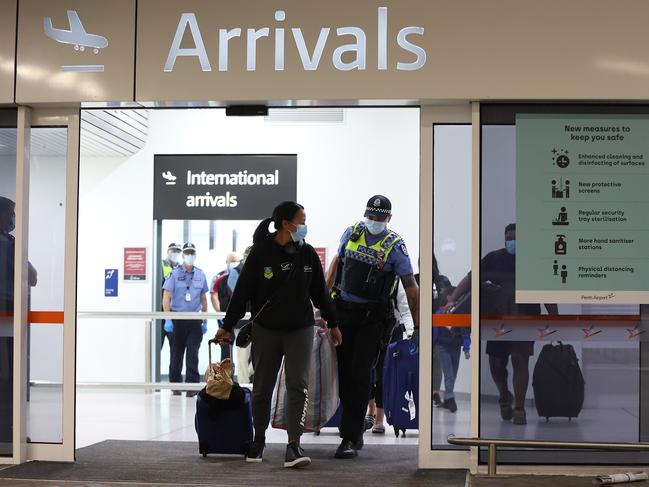
“We have a huge pressure of virus coming into the country. It’s not a question of whether we can kick it out but whether we can control things once they happen when they come in,” she said.
“It is too much to hope we can have a completely watertight, airtight system for quarantine for incoming passengers.”
Dr Miller said although there was no such system with no risk, a quarantine facility located away from the CBD – such as the Howard Springs facility in Darwin – could reduce the risk of infections escaping.
“It’s clear that probably a system where people are completely removed from everybody else would obviously be less likely to have leakage than places that are situated in the CBD as in this case (South Australia) and in Melbourne’s case,” she said.
“But the fact is that there’s just so much of this virus out there.”
READ MORE: The gene geniuses who’ll crush COVID-19
Angelica Snowden 9.11am: We want a NSW-type response in SA: Birmingham
Trade minister Simon Birmingham says a COVID outbreak in South Australia is a warning against complacency for Australians.
“The contact tracing operation is already very, very large,” Senator Birmingham told Nine’s Today show.
“I’m certain there will be, yes, more cases and more isolations to come but that doesn’t mean it spirals out of control like Victoria,” he said.
“We want a NSW-type response here where it is absolutely isolated and quarantined as quickly as possible.”
Senator Birmingham said it appeared a cleaner who worked at hotel quarantine is the source of the outbreak.
He also confirmed he had not heard from his counterpart in China, amid news of a free trade deal with Indo-Pacific countries including Japan and China.
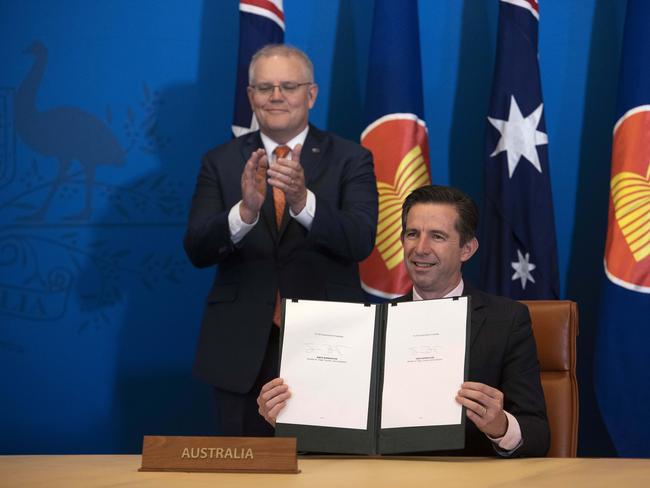
“We are willing to have that dialogue and engage in discussions with China … we do want to see these types of regulatory disruptions stop,” he said.
“(It is) deeply troubling and they are causing pain to Australia.”
Senator Birmingham said Australia would seize on trading opportunities with south east Asian nations as part of the new trade deal.
“We also want to support their leadership in our region,” he said.
“They are a central for stability across the Asian region.
“It is an important deal that brings together nine out of 10 out of Australia’s existing largest trading partners, but many of those in South East Asia with the real growth potential for our businesses and exports.”
READ MORE: Trade pact ‘most important since WTO’
Rachel Baxendale 8.54am: Victoria records 17th day of no cases, deaths
Victoria has notched up its 17th straight day with no new coronavirus cases and no deaths, although testing rates have plunged from a high of 20,819 last Thursday, to just 6,695 in the 24 hours to Monday.
Yesterday there were 0 new cases, 0 lives lost and 0 cases with an unknown source reported. Three active cases remain. There were 6,695 test results received – thank you, #EveryTestHelps
— VicGovDHHS (@VicGovDHHS) November 15, 2020
Information: https://t.co/eTputEZdhs#StaySafeStayOpen #COVID19Vic pic.twitter.com/8d9Ds697Iw
This follows 8,323 tests processed in the 24 hours to Sunday and represents the lowest daily number of tests processed since early June.
A total of three known active cases remain statewide.
READ MORE: Vaccine plant to supply nation
Angelica Snowden 8.48am: Not holding my breath on China despite deal: Canavan
Queensland nationals senator Matt Canavan says a new European Union style single set of free trade rules which Australia has signed up to is positive but unlikely to ease tensions with China.
“It is good news to see this deal finalised and there’s many countries in this deal apart from just China,” Senator Canavan told Nine’s Today show.
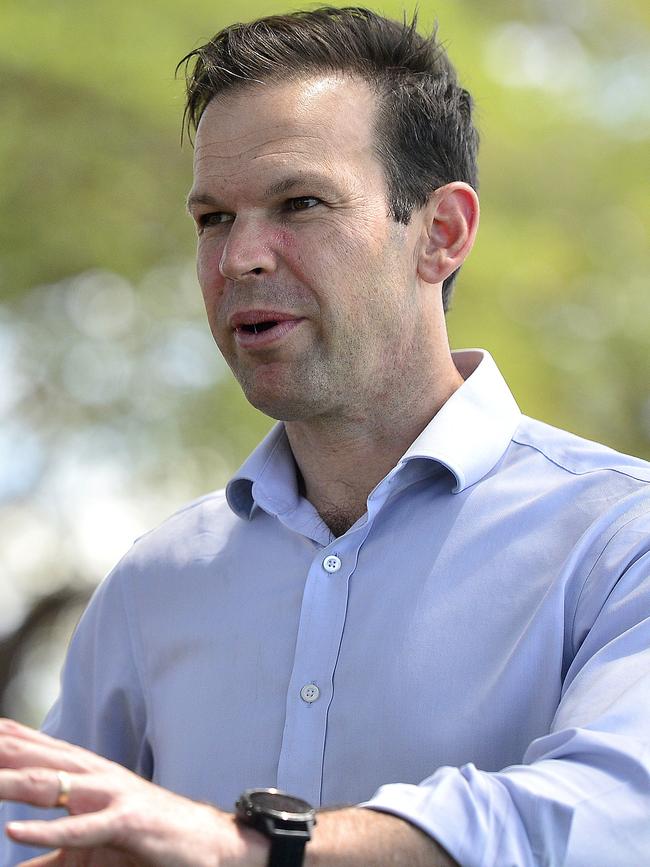
“That’s very important that we diversify our trade away from that country, but look, we signed a trade deal with China five years ago … a very extensive one and unfortunately they have not really adhered to the spirit of that deal,” he said.
“So I’m not holding my breath that China would adhere to the spirit of this deal but, as I say, it’s important to diversify our trade and there are a lot of countries in this arrangement, including in Southeast Asia and Japan, and that’s now got to be our focus.”
Senator Canavan also said trade counterparts in China have not responded to requests for phone calls.
Trade Minister Simon Birmingham announced on Sunday Australia joined 14 other Indo-Pacific countries – including China and Japan – in signing the free trade deal.
READ MORE: Regional partnership forms world’s largest trade bloc
Jacquelin Magnay 8.22am: British PM to isolate for two weeks
British Prime Minister Boris Johnson is to self-isolate for two weeks – despite previously having had coronavirus – after coming in recent contact with a confirmed case of COVID-19.
10 Downing Street said although the prime minister is well, and not showing any symptoms, he would now isolate for the next fortnight after being alerted by the government’s Test and Trace system.
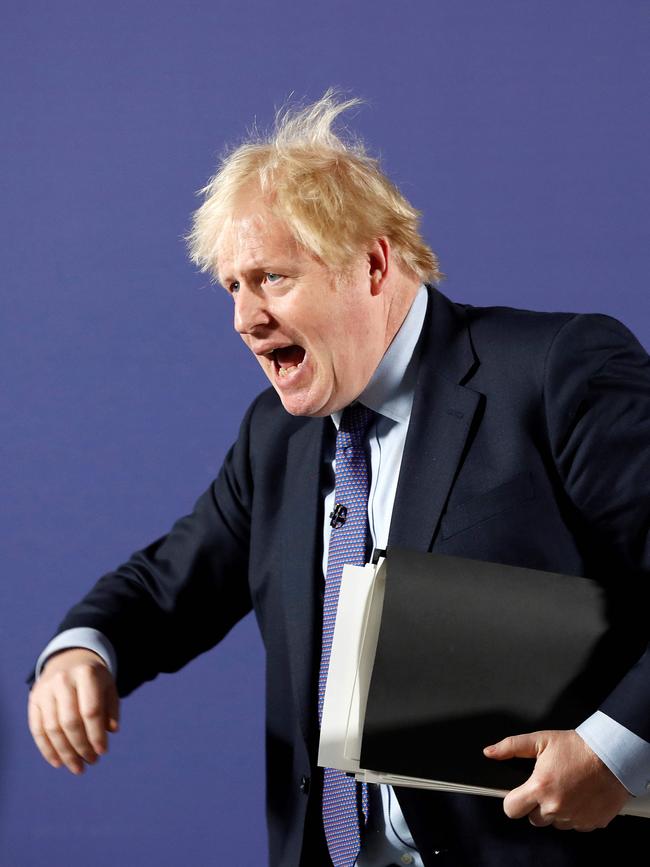
Mr Johnson had been in a meeting with MP Lee Anderson, who has tested positive to the virus.
But the decision to have the leader of the country self-isolate has raised questions about whether people who have had confirmed cases of coronavirus are susceptible to be reinfected a second time, and whether they pose any risk of transmitting the infection onto others.
Scientists such as US National Institute of Allergy and Infectious Diseases chief, Dr Anthony Fauci said last week that there were some very small numbers of reinfection, and the said his was to be expected if people came in contact with different mutated strains of COVID-19.
A Number 10 spokesman said on Sunday night: “The Prime Minister has today been notified by NHS Test and Trace that he is required to self-isolate as a contact of someone who has tested positive for COVID-19. The PM is well and does not have any symptoms of COVID-19.”
Mr Johnson was in intensive care for three days in April after contracting coronavirus on March 26 during the first peak of infections across the United Kingdom.
This latest self-quarantine comes after a week of internal Downing Street turmoil following the abrupt departures of his chief Adviser Dominic Cummings and communications head Lee Cain, in what has been attributed to a coup by his partner Carrie Symonds.
Mr Johnson will now have to re-set the tone of his reconfigured behind-the-scenes-team from afar.
It also spells yet another interruption in Mr Johnson’s term, as this year he has had a lengthy holiday break, a month off sick and recovering from coronavirus and two week’s parental leave.
READ MORE: Carrie takes control from Boris’s ‘mad mullahs’
Angelica Snowden 8.11am: ‘Very serious’: SA cluster grows to 17
A COVID-19 outbreak in South Australia has risen to 17 cases, chief health officer Nicola Spurrier has told Adelaide radio FIVEaa.
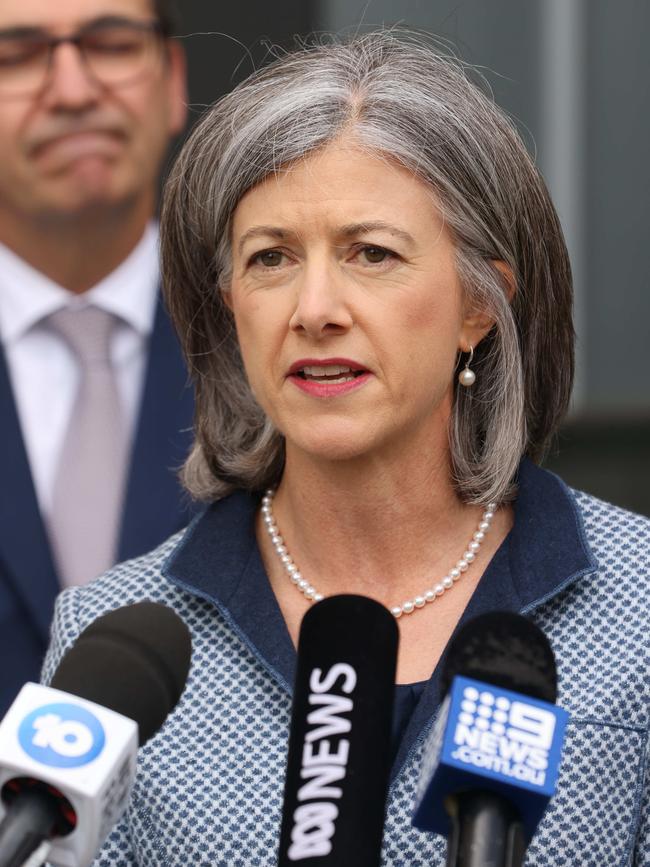
Dr Spurrier confirmed the Port Adelaide Hungry Jacks, Mawson Lakes Primary School, Preschool and the Parafield Plaza Supermarket have been closed in connection with the outbreak.
“This is a very, very serious situation unfolding in Adelaide at the moment,” Dr Spurrier said.
“The significant increase reflects the amount of testing SA pathology did yesterday,” she said.
“We have now got that total of 17.”
Health authorities yesterday revealed three cases of locally acquired COVID-19 had been recorded after an 80-year-old woman contracted the infection from a hotel quarantine worker.
READ MORE: Shock as quarantine hits border travellers
Angelica Snowden 8.04am: Hunt ‘confident’ in SA’s contact tracing
Health minister Greg Hunt says he is confident South Australia’s contact tracers will be able to contain a new coronavirus cluster identified on Sunday.
“We have had Jane Halton review the quarantine system and the chief scientist Alan Finkel reviewed it,” Mr Hunt told the ABC.
“I have had a briefing this morning from the National Incident Centre and last night from the Chief Medical Officer of Australia, Professor Paul Kelly, and their advice is that the system in South Australia is strong,” he said.
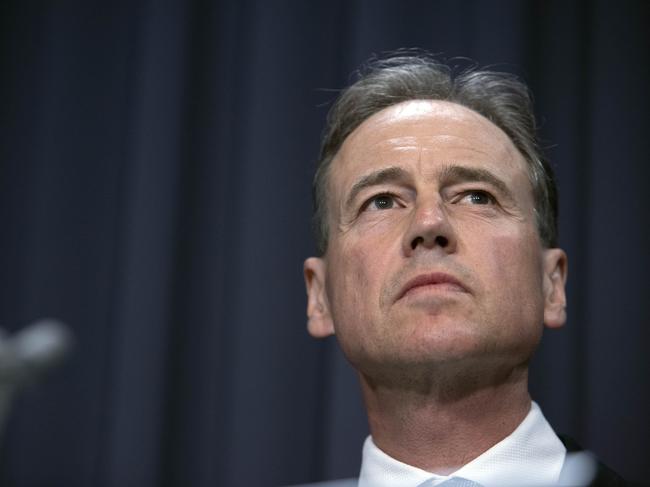
Three new cases of locally transmitted COVID-19 were recorded in South Australia on Sunday after a worker from a quarantine hotel infected their family members.
Chief Public Health Officer Nicola Spurrier revealed an 80-year-old woman was diagnosed on Saturday along with a woman in her 50s and a man in his 60s who returned a positive test result on Sunday.
The National Incident Centre will be available to assist contact tracers, Mr Hunt said.
“These are the sorts of challenges that if we trade or engage with the world, if we bring Australians home, we will face – in a world where there’s over half a million cases a day – and having these strong testing, tracing and isolation systems are absolutely critical,” he said.
“And South Australia on all the evidence does have exactly that.”
Mr Hunt said Scott Morrison offered to send defence force personnel to assist in South Australia.
He also said the government “reluctantly and regretfully” supported the lock down in Melbourne after the contact tracing system was not able to cope.
READ MORE: Aged-care influx ‘led to huge health worker cluster’
Angelica Snowden 7.40am: Qantas’ domestic schedule to operate at 60pc of peak
Qantas domestic flights could be operating by more than half of their previous schedule by Christmas, CEO Alan Joyce says.
When Qantas started selling Melbourne-Sydney flights again recently, 40,000 people snapped up seats in the first few days.
— News Breakfast (@BreakfastNews) November 15, 2020
CEO Alan Joyce thinks Qantas will get more than 60 per cent of its schedule operating by Christmas. pic.twitter.com/88dQFIoBsa
But the increase in flight routes is dependent on borders opening, Mr Joyce said.
“What we’re still thinking is that by Christmas we will get to over 60 per cent of our schedule operating,” Mr Joyce told the ABC.
“Which I think is important for economic and social reasons … to get people back together for Christmas,” he said.
Monday marks the 100 year anniversary of Qantas.
Mr Joyce said there is “huge demand” for domestic travel, after the company sold 40,000 seats on flights between Sydney and Melbourne ahead of the November 23 border lifting.
“Before COVID we were at 45 flights a day,” he said.
“Now we’re looking for 15 … People want to see family and friends and want to take that break after being cooped up for so long.
“So we have optimism that the travel will be there, domestically.”
Mr Joyce hoped to take advantage of the opportunities for domestic tourism too.
“Eleven million Australians went overseas every year and they are likely to want to have in the next year a holiday at home,” he said.
“That could be a big boom for domestic travel and then we are optimistic that with a vaccine, that we can start seeing international coming back and maybe even before the vaccine is fully rolled out, we could see bubbles to various markets like New Zealand, like Japan, like Korea, like Taiwan, which we’d be very interested in operating.”
READ MORE: Shock as quarantine hits border travellers
Dow Jones 7.14am: United States’ third wave reaches new heights
With a third surge of the COVID-19 pandemic hitting the US, many public-health authorities are warning the coronavirus is now so widespread that it will take pervasive new measures to contain it.
I am the president-elect, but will not be president until next year. COVID-19 does not respect dates on the calendar, it is accelerating right now. Urgent action is needed today, now, by the current administration.
— Joe Biden (@JoeBiden) November 14, 2020
New infections surpassed 177,224 on Friday, setting a daily record that eclipsed the highest daily case counts of previous peaks in the spring and summer.
In those earlier surges, infections were concentrated in cities such as New York and Chicago, or populous states like Florida and Texas.
Many of the outbreaks then were linked to travellers returning from overseas or so-called superspreading events such as conferences, weddings and rallies.
Now the number of confirmed cases is rising significantly in all but a few states, according to a Wall Street Journal analysis of data from Johns Hopkins University.
More than 194,000 #COVID19 cases identified yesterday. We must get the pandemic under control. Do your part to slow the spread & save lives. #WearAMask. Cover mouth AND nose. Stay 6 feet from others. Wash your hands. Stay home if you can. Get the facts: https://t.co/DmfPOB7nbu. pic.twitter.com/52Gy7VQMVl
— CDC (@CDCgov) November 13, 2020
Most of the new cases are in the Midwest, which is experiencing a major surge. But even states and cities that had successfully beaten the virus down to low levels are struggling with rising numbers of illnesses.
“This is clearly a nationwide event … we have many mini-epidemics,” director of the Center for Infectious Disease Research and Policy at the University of Minnesota Michael Osterholm said.
Mr Osterholm is a member of President-elect Joe Biden’s COVID-19 advisory board.
In a bid to prevent further outbreaks – predicted to get worse during the winter – some state officials took new steps last week, including stricter mask mandates and tighter restrictions on gatherings.
In Wisconsin and Chicago, officials issued stay-at-home advisories, while Vermont’s governor prohibited all public and private social gatherings outside of members of the same household.
But many state and local leaders have been reluctant to return to the broad lockdowns imposed in the spring because of the severe economic and financial consequences for businesses and the public.
Epidemiologists have cited several factors behind the current surge which include colder weather driving people indoors, the return of students to college campuses, public-health measures such as mask-wearing that are recommended but not required in some states and pandemic fatigue.
Dow Jones
READ MORE: Japan a priority in post-Covid world
Angelica Snowden 6.50am: Germany’s COVID-19 lockdown ‘to last months’
Germany warned its anti-coronavirus measures were likely to last four or five more months as Greece announced a new ban on gatherings and Mexico surpassed one million infections.
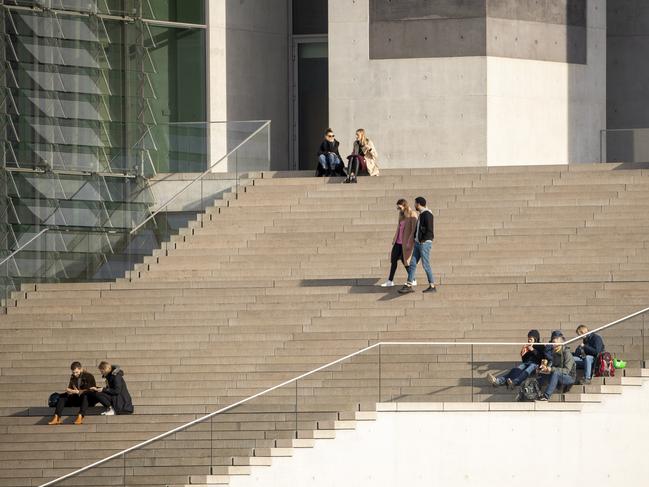
Germany, Europe’s largest economy, went into partial lockdown in early November, closing bars, restaurants and other recreational facilities. However, schools and shops have remained open.
“We will have to live with considerable precautions and restrictions for at least the next four to five months,” Economy Minister Peter Altmaier told Bild.
His comments came ahead of a government meeting on Monday to decide whether to extend the new measures, which are provisionally in place until the end of November.
The number of COVID-19 patients in intensive care has soared from 360 in early October to more than 3,300.
Demonstrations against restrictions were held on Saturday across Germany, including one in Frankfurt where police used water cannon.
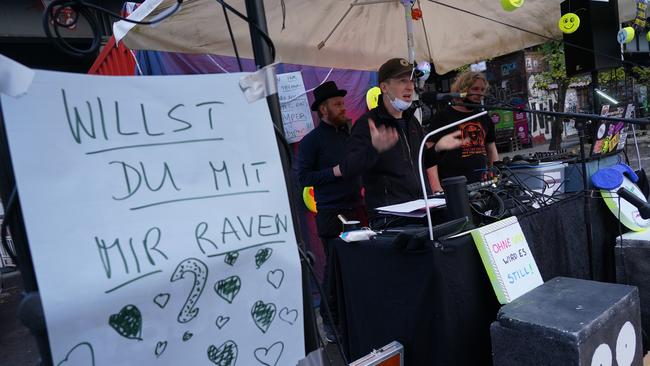
Meanwhile in Greece, police announced a ban on public gatherings of four or more people, announcing that events and marches set to commemorate a 1973 student uprising would not take place this year.
The anniversary of the revolt against a military junta, considered to have helped restore democracy in the country, is treasured by many Greeks.
Last year it was marked with demonstrations by more than 30,000 people in Athens and other major cities.
But opposition parties have pledged to proceed with events this year despite the new restrictions.
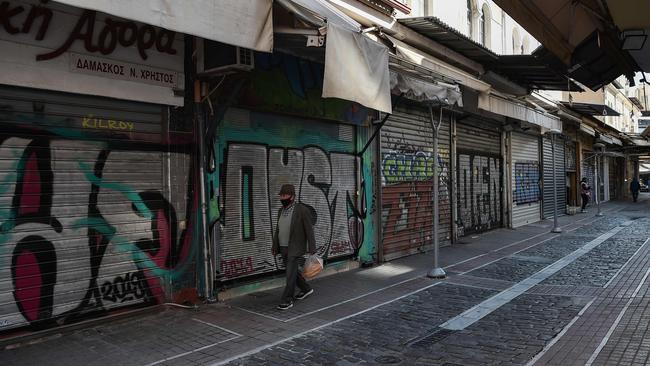
Greece had on Saturday said it would shut primary schools, kindergartens and daycare centres as its number of COVID-19 deaths soared past 1,000.
In Romania, 10 patients being treated for coronavirus were killed and others were in critical condition after a fire broke out in a hospital intensive care unit in the country’s northeast late Saturday.
The doctor on duty, who tried to help the victims, suffered second and third degree burns to 80 per cent of his body.
The cause of the blaze was unclear, the health ministry suggesting the fire could have been caused by an electrical short circuit.
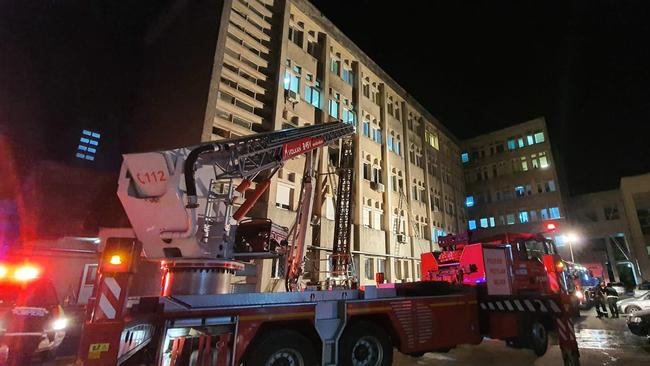
“I express my respect for the heroic doctor who showed particular courage and spirit of sacrifice,” Prime Minister Ludovic Orban said. — with AFP
READ MORE: ddd
Angelica Snowden 6.35am: New global record for COVID-19 cases
A new global high for COVID-19 cases was recorded by the World Health Organisation over the weekend.
On Saturday, a sky-high 660,905 cases — a 2.4 per cent increase from the previous day — were recorded on the WHO coronavirus dashboard, while there were 594,000 cases recorded on Sunday.
Both days surpassed the previous daily record high of 614,013 recorded on November 7.
I fully agree. Thank you for this great video, Government of #Germany. To beat #COVID19, this winter:
— Tedros Adhanom Ghebreyesus (@DrTedros) November 15, 2020
-Avoid crowds, #StayHome
-Keep physical distance
-#WearAMask
-#WashYourHands
-Keep your windows open as much as possible
-Cough, sneeze away from others
Let’s #ACTogether! https://t.co/ttfh4RF7a1
Within Saturday’s new case numbers, the WHO’s Americas region registered a one-day record high of 269,225 new confirmed cases.
Each week the pattern of cases being reported to the WHO tends to peak towards Friday, Saturday and Sunday, and dip around Tuesday and Wednesday.
WHO director-general Tedros Adhanom Ghebreyesus warned there was “a long way to go” in getting the virus under control globally.
“No country can say it was well-enough prepared for COVID-19, or that it has no lessons to learn,” Mr Ghebreyesus said on Friday as he closed the WHO’s annual assembly, at which member states approved a resolution on strengthening preparedness for health emergencies.
Very good piece by John Denton, @ICCSecGen. The smartest way to end the pandemic and fire up an economic recovery is to back the ACT-Accelerator. The sooner an investment is made, the faster lives and businesses will be saved. #ACTogetherhttps://t.co/dviwCJdwhM
— Tedros Adhanom Ghebreyesus (@DrTedros) November 15, 2020
“The world cannot put all its eggs in one basket and neglect the many other tools at our disposal that … are effective for bringing this virus under control.
“The virus itself has not changed significantly, and nor have the measures needed to stop it.”
The 9,928 deaths reported to the WHO on Thursday, 9,567 on Friday and 9,924 on Saturday marked the first time that more than 9,500 deaths have been registered on three consecutive days. — with AFP
READ MORE: European virus cubs tighten as deaths pass 1.3 million
Jacquelin Magnay 6am: Vaccine has no serious side-effects, creator says
Professor Uğur Şahin says his Pfizer BioNTech vaccine has had no serious side-effects and believes it will more than halve COVID-19 transmission around the world, leading to a “dramatic reduction in cases”.
The United Kingdom has ordered 40 million vaccine doses by December, while as many as five million people in Australia will be able to receive the vaccine once it has obtained Australian regulatory approval in the new year.
#Marr: Will society be back to normal by spring 2021?
— BBC Politics (@BBCPolitics) November 15, 2020
BioNTech founder Prof UÄŸur Åžahin: "We can have a normal winter next year" if a high vaccination rate is achieved by autumn
Covid-19 https://t.co/yuuSb1O1wa pic.twitter.com/4ho76VHX0x
Prof Şahin, who heads BioNTech, believes the vaccine’s rollout will see life return to normal by mid-2021. He said side effects of the vaccine, administered in two jabs 21 days apart, were mild to moderate pain in the injection site for a few days, and a mild to moderate fever for one or two days.
Read the full story here.
Victoria Laurie 4.55am: Shock as border travellers forced to quarantine
Passengers on a Sunday flight from Adelaide to Perth were shocked to be told they had to go into two weeks’ quarantine on arrival, despite the West Australian government only hours earlier assuring South Australians they could enter the state without having to isolate.
From 12.01am on Saturday when WA’s closed border changed to a controlled border, residents from all states and territories except NSW and Victoria had been free to travel to WA without quarantining for two weeks.
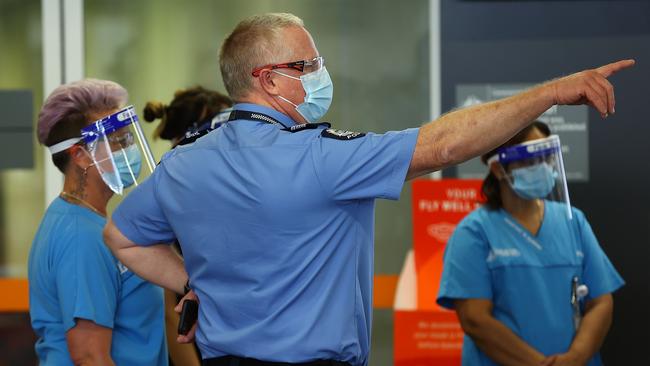
The passengers, who were on a flight landing midafternoon Perth time, were due to be met by WA police and told to undergo a COVID-19 test and self-isolate for 14 days after disembarking.
The WA Chief Health Officer was forced to make the change in light of news of three new locally-acquired COVID-19 cases in SA after a quarantine hotel worker infected their family members.
In a sign it will reimpose border controls quickly if necessary, the McGowan government said its health experts consulted with SA Health and ordered the changes immediately.
This is our WA COVID-19 weekend update for Sunday, 15 November 2020.
— Mark McGowan (@MarkMcGowanMP) November 15, 2020
For official information on COVID-19 in Western Australia, visit https://t.co/rf5avD4RYphttps://t.co/SxMbz8F4b9 pic.twitter.com/NKmeYnH4qm
Read the full story, by Victoria Laurie and Imogen Reid, here.
Yoni Bashan 4.30am: Cheap debt ‘will rebuild surplus in five years’
The NSW budget will take five years to return to surplus, with significant borrowings made possible by cheap debt to turn around the economy, Treasurer Dominic Perrottet says.
Mr Perrottet said NSW would need to embrace debt to fund major infrastructure projects and ongoing stimulus packages, with the cost of servicing these loans to average just 3.2 per cent of revenue over four years.
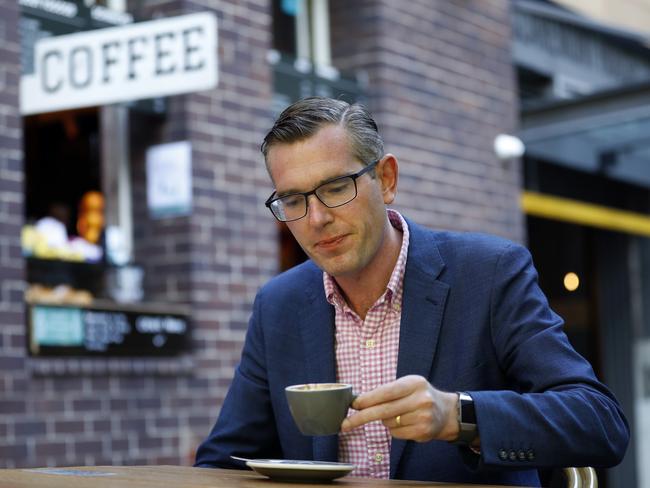
“While there is going to be significant increases in borrowings to help fund the state’s infrastructure program and stimulus measures and various other things, the cost is incredibly low,” he said.
“If you go back 10 years, we were borrowing at 6 per cent. Now we’re borrowing at one per cent for T-Corp bonds.”
The budget, to be handed down Tuesday, will outline the devastating extent of the coronavirus pandemic on the state, with lockdown restrictions costing roughly $1.4bn each week at the height of the crisis. This has since been revised down to $400m per week due to ongoing losses in the hospitality and tourism sectors, Mr Perrottet said.
Read the full story here.
Rachel Baxendale 4.15am: Aged-care influx ‘led to huge health worker cluster’
A large, sudden influx of coronavirus-positive aged-care residents contributed to Australia’s biggest health worker cluster of 262 cases of coronavirus among Royal Melbourne Hospital staff in July and August, according to the authors of a paper published in the Medical Journal of Australia on Monday.
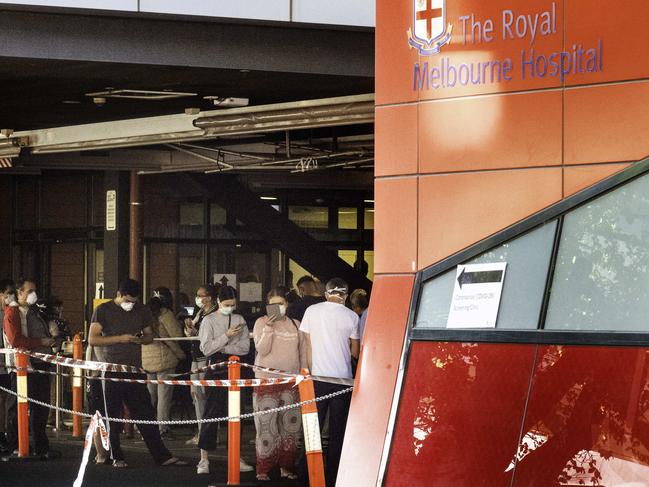
The authors, led by RMH infectious diseases physician Kirsty Buising, found the hospital “rapidly controlled” the spread of coronavirus by adapting measures to target settings and demographics within the facility.
Of 262 staff identified as having the virus between July 1 and August 31, 15 (5.7 per cent) required inpatient care and 13 (4.9 per cent) received care via a “hospital in the home” service, while two were admitted to intensive care. None died.
Read the full story here.
Remy Varga 4am: Visible means of youth support
A national youth-focused mental health campaign tackling stigma by highlighting the experiences of young Australians launches on Monday.
As many struggle after a year defined by isolation and disruption in the pandemic, a survey conducted by youth not-for-profit headspace has found three out of four young people believe mental health is still stigmatised.
Headspace chief executive Jason Trethowan said the first-of-its-kind Visible initiative aimed to normalise conversations around mental health in a bid to make it easier for young people to reach out for help.
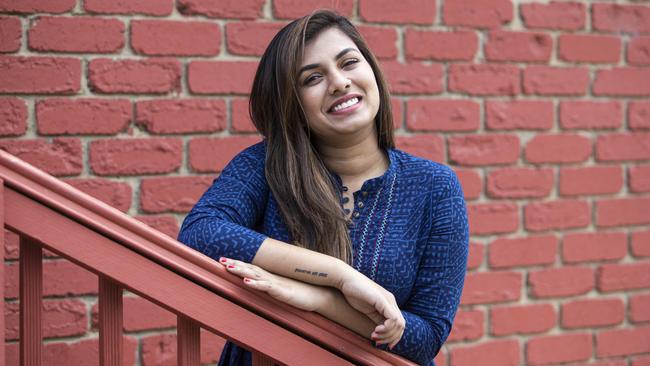
“There are many reasons why young people don’t discuss their own mental health challenges and seek help, but we know stigma plays a big role,” he said.
“Spending time getting to know people impacted by mental health issues, hearing their stories and understanding their experiences, helps to change negative attitudes, reduce fear and reduce social distance.”
The digital exhibition Visible launches on Monday and showcases 12 works created by Headspace youth ambassadors from across Australia in collaboration with professional artists.
Read the full story here.

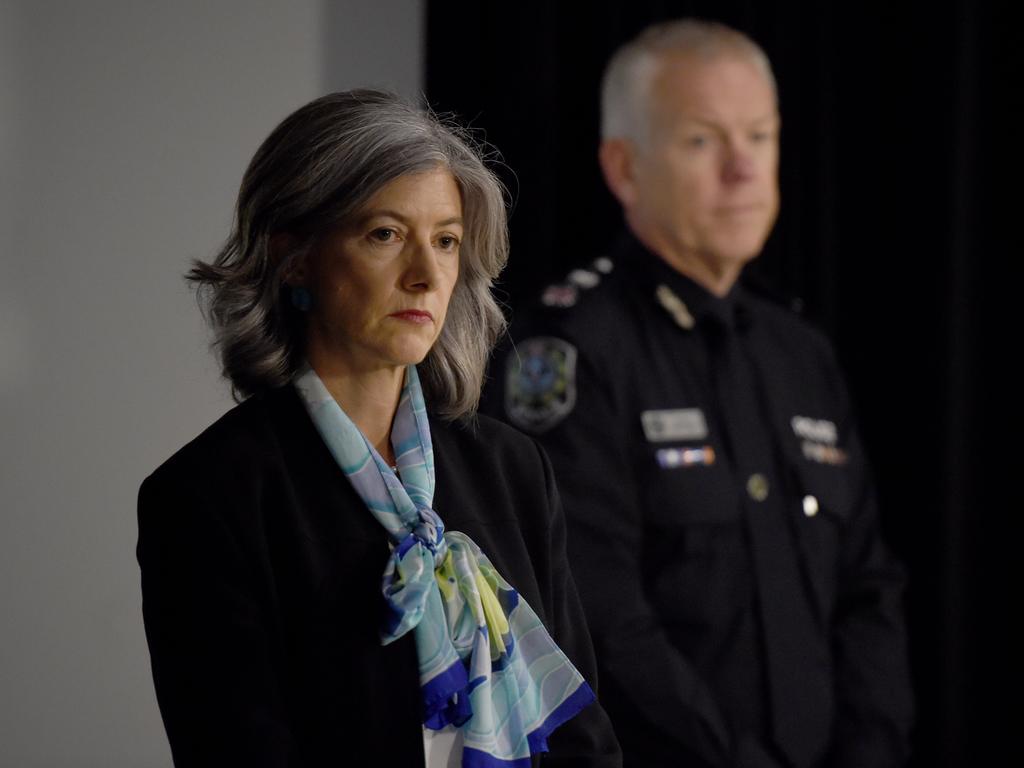
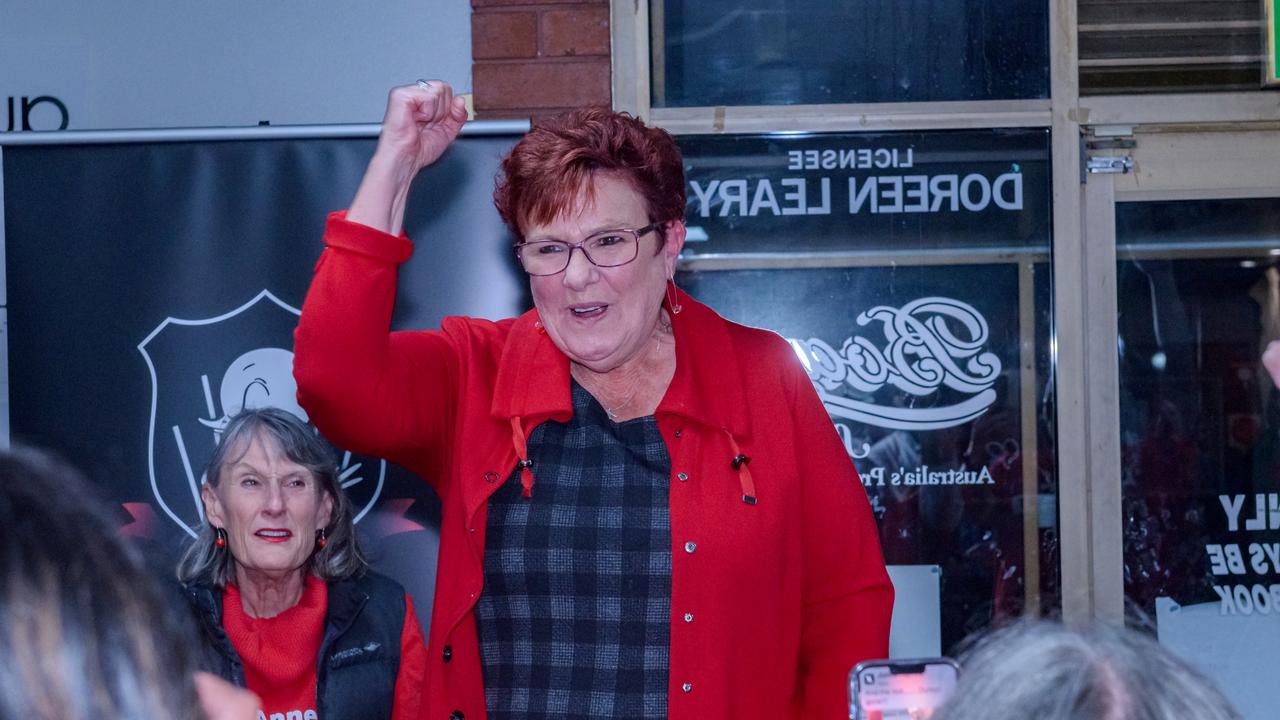
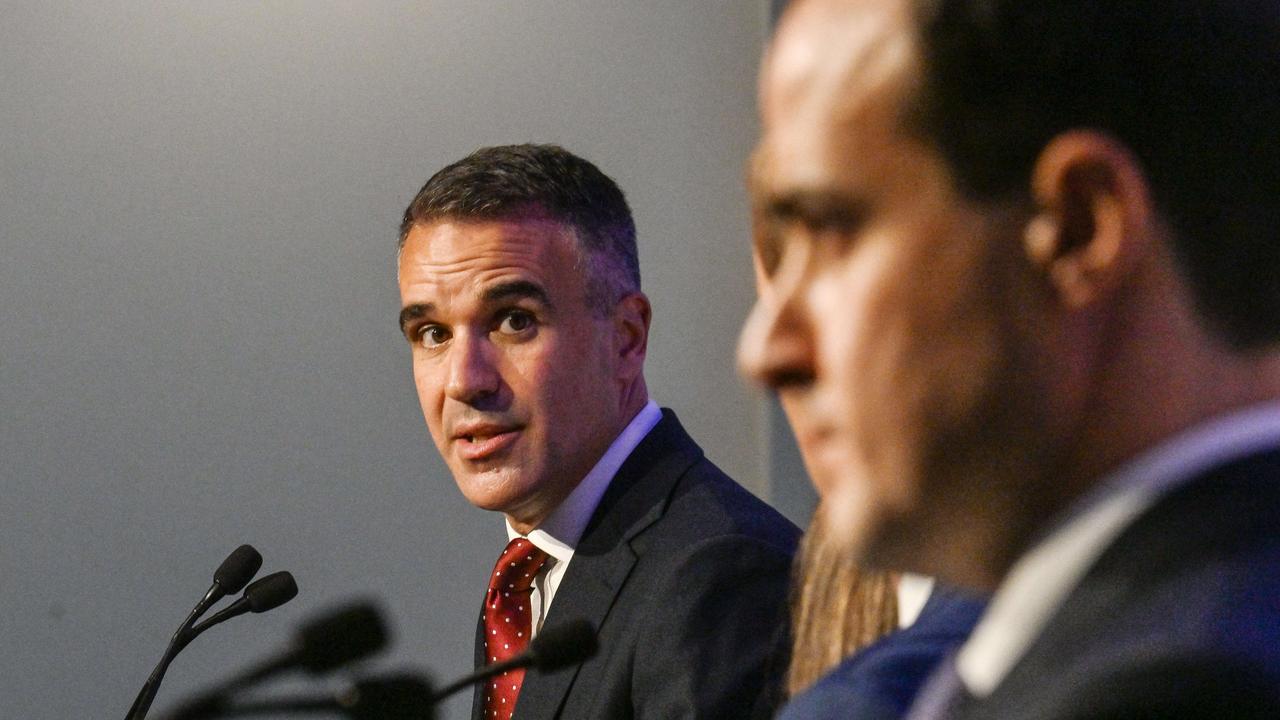
To join the conversation, please log in. Don't have an account? Register
Join the conversation, you are commenting as Logout